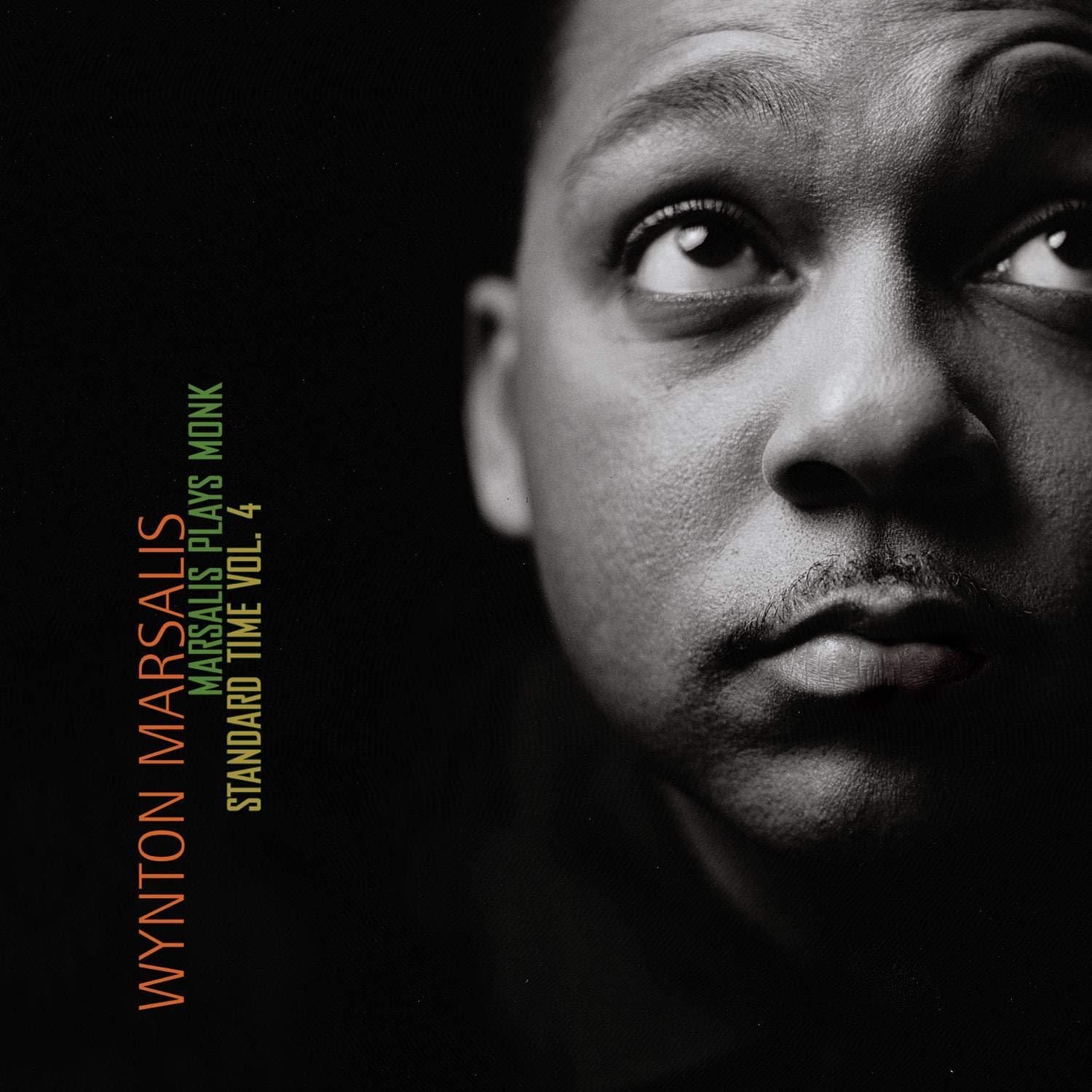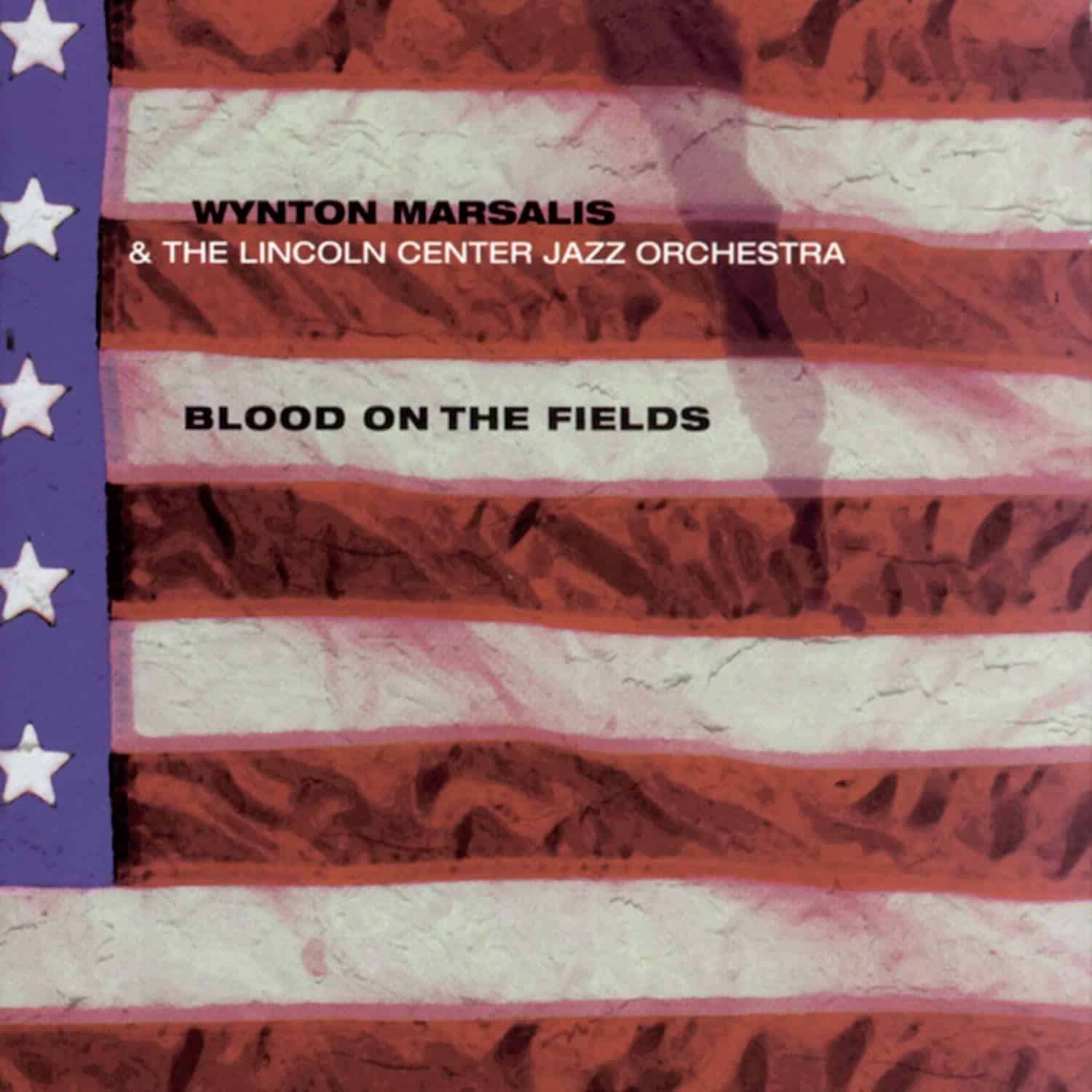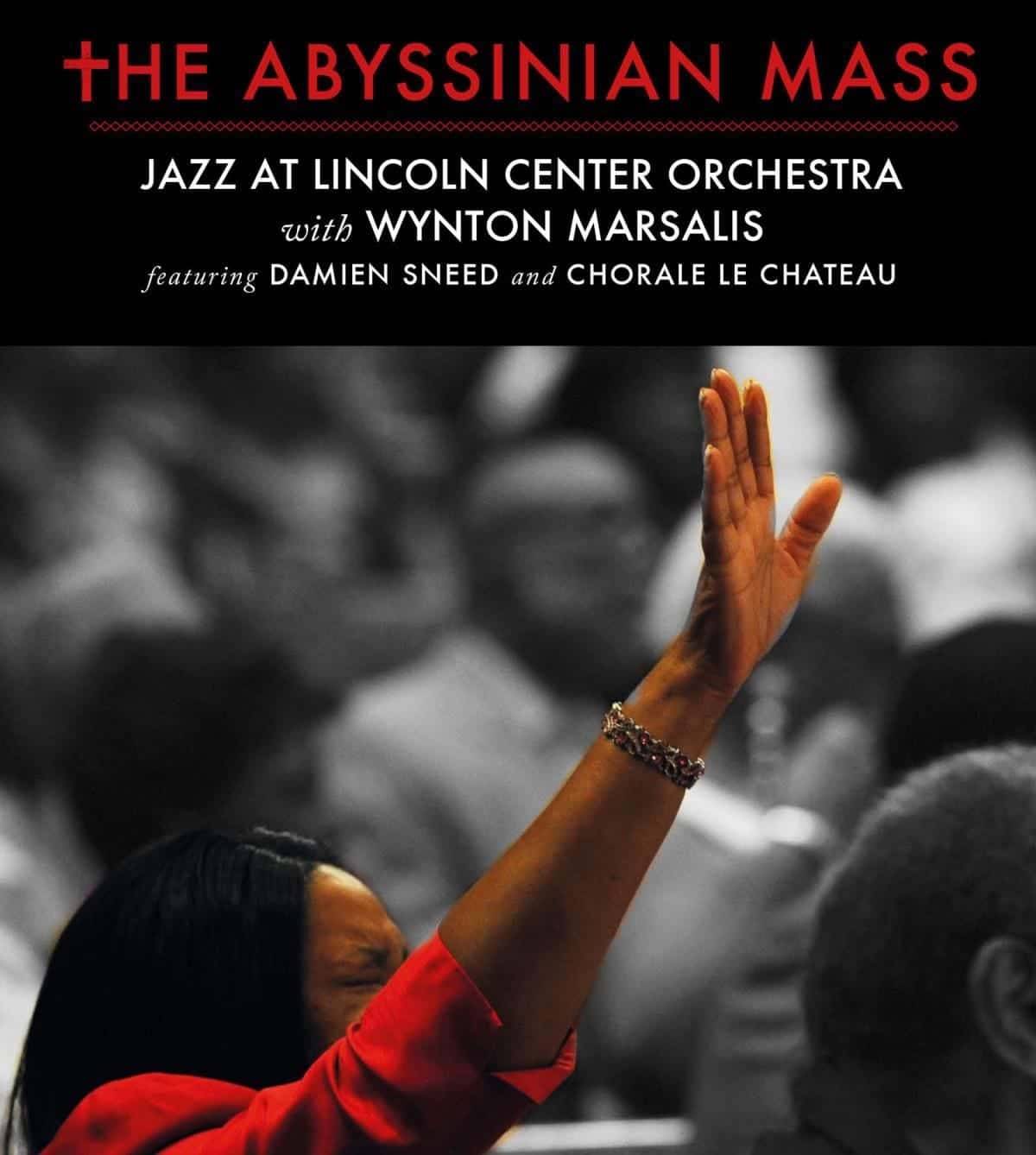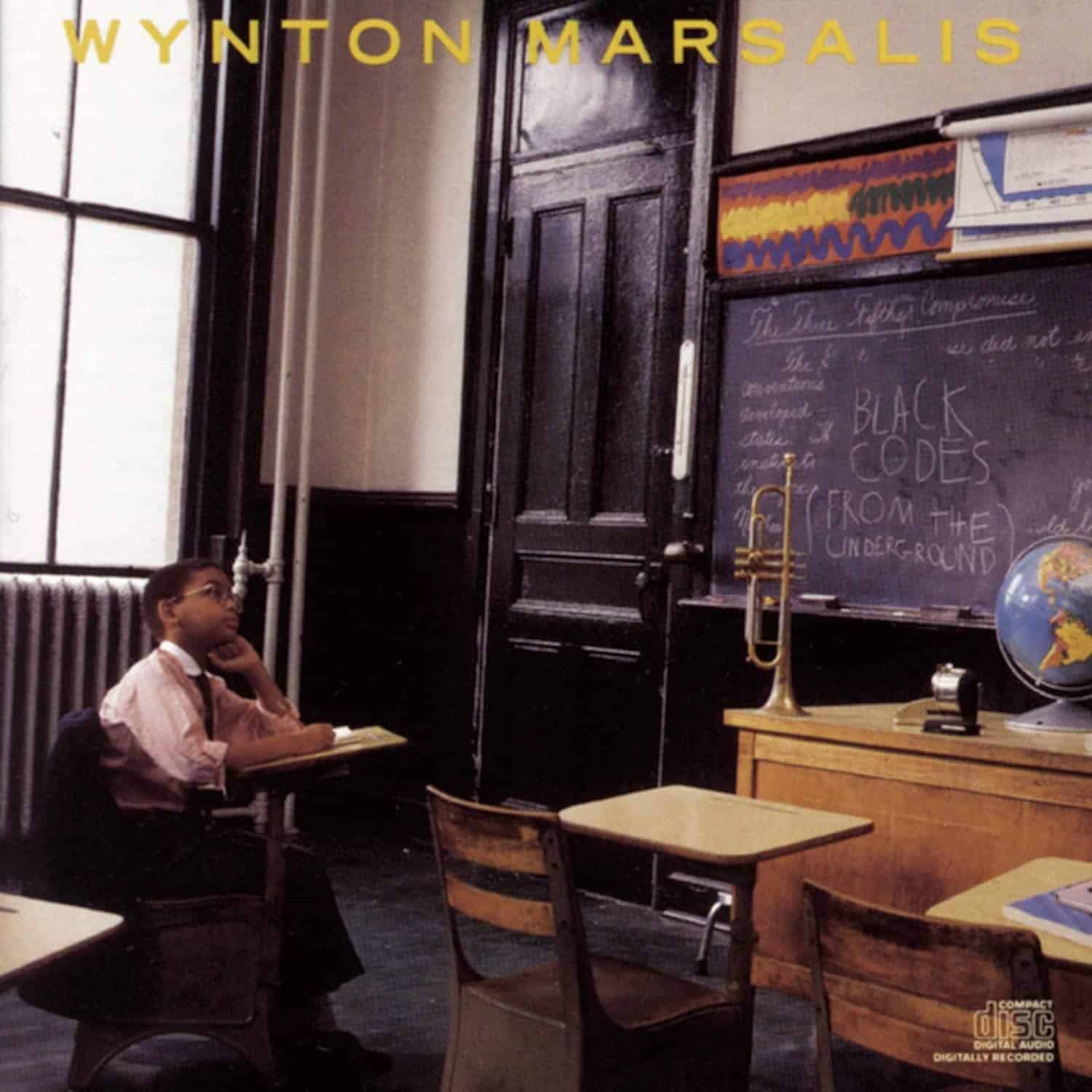4. Marsalis Plays Monk (Standard Time Vol. 4) [1999]

Why It’s Superb: Marsalis’s “Standard Time” series (we all stopped counting the volumes—there was even a Jelly Roll Morton version) was a systematic way for him to deal with some of the canon and making “your Monk record” was nearly an obligation for a particular generation of players. Marsalis uses his septet with pianist Eric Reed, two or three reeds, and Wycliffe Gordon’s essential trombone to assay a non-typical set of Monk classics—no “Round Midnight”, “Blue Monk”, or “Well, You Needn’t” for example.
The arrangements are varied, often punchy, and decidedly fat-free. “Monk’s Mood” gets no solos. “Hackensack” is uniquely voiced and phrased, setting up a bass solo and an improvised duet for trumpet and alto. The rarely heard “Brake’s Sake” receives an utterly ingenious mini-big band arrangement, with Marsalis’s solo among the best of the set. “Brilliant Corners” is taken just by Eric Reed’s trio. After many recordings where Marsalis’s devotions to Armstrong and Ellington felt like they were enclosing his own style, having to deal with the more playful light of a third genius of the music—Monk—was a tonic.
Killer Tracks: “Reflections”, “Thelonious”
Notable Collaborators: Monk’s tunes
Wynton-ian Moment: “Four in One” is a complex line to start with, and the trumpet solo here starts as a stately, mid-register statement but in the second chorus begins double-timing in brilliant flurries that connect back to the theme and to the ideas set out in that first chorus. Throw in some soulful bent-tone half-valving and you have a Marsalis solo to listen to over and over again.
Listen: Spotify
3. Blood on the Fields [1997]

Why It’s Fantastic: On the one hand, this oratorio for three voices and jazz orchestra epitomizes Marsalis’s most grand notions of importance (it is about nothing less heavy than American slavery) and tradition: the band has little recitations of text and Marsalis was in the midst of a period of Ellington wrangling that no one else has ever attempted. The grandiosity was a bit much. On the other hand, it rises to and far, far above its critics.
The opening “Calling the Indians Out (Part I)” is a big, brash bit of programmatic music that suggests Mingus as much as Ellington. There are lush, romantic ballads, dances, dirges, and moments of triumph. Cassandra Wilson sings the part of Leona, Miles Griffith sings Jesse, and Jon Hendricks sings the third set of roles—and Regina Carter briefly appears on violin. It’s 160 minutes of music that tries desperately to be great. And it is.
Killer Tracks: “Soul for Sale” with Hendricks singing puckishly about a colossal crime and then scatting (!), and “I Hold Out My Hands”, sung sensuously by Cassandra
Notable Collaborators: Cassandra Wilson, Jon Hendricks, pianist Eric Reed
Wynton-ian Moment: In all of this, there isn’t a moment of trumpet bravado that is plainly the composer. Maybe that’s the point?
Listen: Spotify
2. The Abyssinian Mass [2016]

Why It’s Superb: Marsalis may lack humility, but he doesn’t lack talent or ambition. This remarkable set of compositions is in the form of a mass, all written for and performed with not only the Lincoln Center Jazz Orchestra but also the Chorale le Catheau, 80 voices strong, all conducted by Damien Sneed. In his body of work, there is Marsalis writing for singers, for strings, for all sort of combinations, but here his grandest ambitions are matched by a tradition that grounds him even as it expands him.
The chorale is superb and strong, balancing the orchestra and dirtying them up too. There is jazz here, of course, but also gospel music, bossa nova, call-and-response everywhere. It’s serious but joyous in ways that almost none of Wynton’s long-form stuff gets to. I find myself ranking this and Blood on the Fields so high because the “degree of difficulty” on these recordings was through-the-roof. Wynton Marsalis could have just played the trumpet like a madman for his entire career. But he went further.
Killer Tracks: “Recessional: The Glory Train”—because Marsalis has done whole albums of his “train” grooves, but this one comes with killer gospel singing.
Notable Collaborators: Chorale le Catheau, Damien Sneed
Wynton-ian Moment: It’s clearly Wynton taking the swinging, gorgeously phrased trumpet solo on “Offertory: The Son” It’s a slice of modern jazz amidst the rest of this, showing the continuity of the art form.
Listen: Spotify
1. Black Codes (From the Underground) [1985]

Why It’s Mind-Blowing: After 35 years, this album remains stunning and brash, certainly the highlight of Marsalis’s early years and the recording no one can seem to get out of their head. He wasn’t quite the new kid in jazz anymore, playing largely to blow your mind. But he wasn’t yet engaged in a giant project to reignite the passion for (and reimagine) Louis Armstrong or Duke Ellington for a new age. Black Codes is a fully mature album made by a crackling young band that had a thousand gears and a thousand ideas, extending the modern, post-bop tradition.
It’s easy to forget today that, in 1985, there hadn’t been hundreds of sharp neo-bop albums made by bands of “young lions”—this date had a genuine JAZZ IS BACK! vibe to it, but it all felt earned. Branford is playing up to his brother by now, particularly on soprano sax features such as “For Wee Folks”, and the Kenny Kirkland/Jeff Watts conversation is at all times rippling and astonishing. Bassist Charnett Moffett is propulsive and spectacular too. And it might be the best jazz album ever to win the Best Jazz Instrumental Performance Grammy on top of all that.
Killer Tracks: “Delfeayo’s Dilemma”, and the muted trumpet/soprano sax loveliness of “Aural Oasis”
Notable Collaborators: Brother and saxophonist Branford Marsalis, drummer Jeff “Tain” Watts, and pianist Kenny Kirkland
Wynton-ian Moment: The trumpet solo on “Chambers of Tain” must have inspired a million young players to simply give up the instrument . . . and several thousand to pick it up and see what else is possible.
Listen: Spotify
- Popular Songs: The Best of Wynton Marsalis
- Wynton Marsalis: Swinging into the 21st
- Willie Nelson and Wynton Marsalis featuring Norah Jones: Here We ...
- Wynton Marsalis and Willie Nelson: Live from Jazz at Lincoln Center ...
- Wynton Marsalis: Standards and Ballads
- Wynton Marsalis: The Spiritual Side of Wynton Marsalis - PopMatters
- Wynton Marsalis’ 'Blood on the Fields', Still Genius ...
- Wynton Marsalis: He and She

